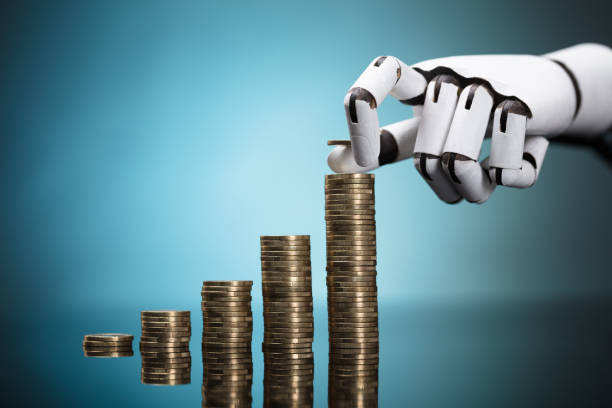
The hallmark of all technology and human advancement has always been to increase productivity. Whether we look back to the invention of the steam engine during the Industrial Revolution or the proliferation of the internet in the 1990s, each technological leap has brought about a wave of productivity that fundamentally transformed our economies. Increased productivity, after all, powers economic growth. As we now stand at the frontier of the AI era, we can expect that it too will fuel an unprecedented boost in productivity.
Why is this shift so critical to understand? Because as productivity grows, it creates ripple effects that reshape the economy on a macro scale. Here are three key changes we can expect to see in the global economy:
1. Redistribution of Wealth to High-Growth Economies: AI promises immense potential for growth, but it will likely be economies that invest in and innovate with AI technology that capture this value. These “high-growth” economies will likely see a rise in wealth as they attract talent, investment, and interest as AI hubs.
2. Monetary Policy Adjustments: With the shift AI brings to productivity and workforce dynamics, we can expect monetary policies to adjust to these new economic realities. Interest rates, inflation targeting, and fiscal policies will all likely adapt to support economies that integrate AI while managing potential job market shifts.
3. Overall GDP Boost: At a more general level, AI-driven productivity could contribute significantly to GDP growth worldwide. By enhancing efficiency across industries—from healthcare to manufacturing to finance—AI can lead to more value created per worker, boosting the GDP in countries that successfully integrate it.
Positioning Yourself to Gain in the AI Era
As individuals, positioning ourselves to benefit from this new AI-driven landscape requires us to identify key trends and adapt accordingly. Here are my three main predictions for the AI era:
1. Energy: Powering more advanced AI models will demand more robust and sustainable energy sources. We are already seeing increasing energy demands from data centers and AI processing needs. Investing in and staying knowledgeable about renewable energy and energy-efficient technology is essential, as energy will be the backbone of this revolution.
2. Open-Source AI: Although OpenAI may have taken a more closed approach, the momentum in open-source AI remains strong. Open-source AI can democratize access, allowing more developers and companies to adopt and innovate with AI, ensuring that AI becomes a widely available tool rather than being restricted to a few large corporations. Is Meta making moves in this area? It’s possible, and this approach could spur a more inclusive AI ecosystem.
3. Data Cybersecurity and Ethical Practices: As AI becomes increasingly embedded in our lives, protecting data integrity and user privacy will become crucial. Ethical AI practices, including transparent data usage and secure frameworks, will be cornerstones of public trust in AI. Familiarizing yourself with data security, regulations, and ethical AI frameworks will be critical to thriving in this environment.
The AI Era: Get on Board
AI is the future, and it’s well on its way to becoming as ubiquitous as the software on our mobile devices. Its role in daily life will soon feel as natural and indispensable as the internet or smartphones. Whether you’re a business leader, an innovator, or simply someone looking to stay ahead of the curve, the time to jump on the AI wagon is now. This productivity deal is just the beginning, and it’s set to reshape our world.
